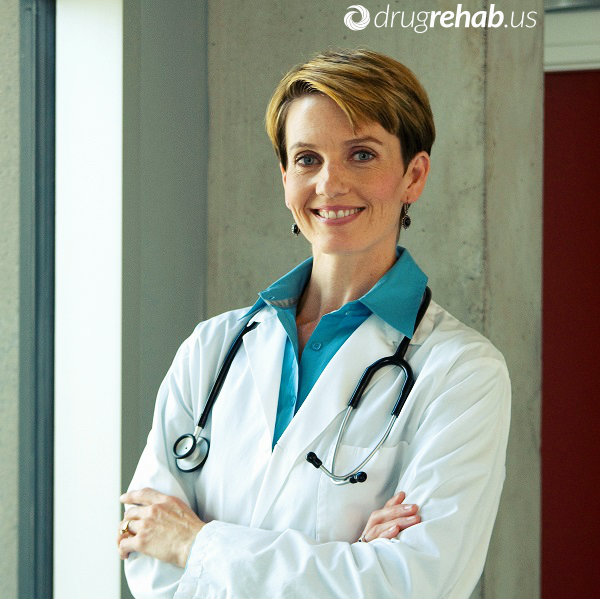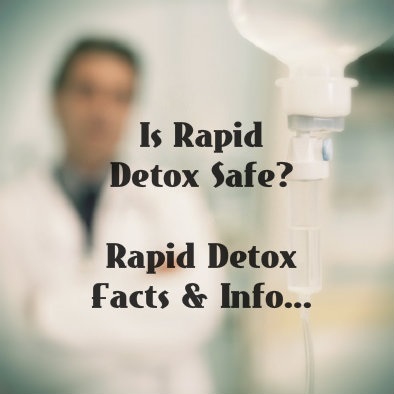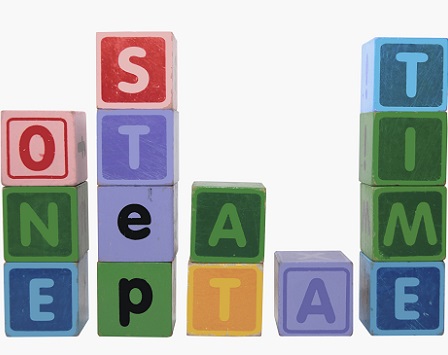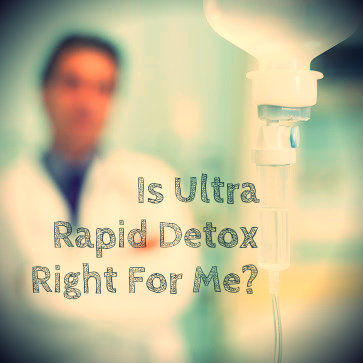26 Mar 2015
Is Medical Detox Right For Me?
Getting into recovery from drug or alcohol addiction is not an easy feat. You have to go through many phases and then you have to maintain your sobriety. Even once you have gotten sober, you have to live with the fact that you are always in recovery and never cured from addiction. These are big hurdles to clear. One of the earliest barriers to getting sober is going through detox. This is the process of eliminating a drug or alcohol from your body. It can take several days and can be very uncomfortable. Many people fail at this stage and start using again. Medical detox is one solution, but it isn’t always the answer.
What Is Medical Detox?
 Before you decide if medical detox is right for you, you should learn more about what it means. When you detox, you stop using and your body goes through withdrawal as the substance leaves your body. Withdrawal can be a terrible experience, especially if you have been using for a long period of time. Certain drugs, like heroin, cause the most intense withdrawal symptoms.
Before you decide if medical detox is right for you, you should learn more about what it means. When you detox, you stop using and your body goes through withdrawal as the substance leaves your body. Withdrawal can be a terrible experience, especially if you have been using for a long period of time. Certain drugs, like heroin, cause the most intense withdrawal symptoms.
To get through detox more comfortably, you can opt for a medical detox. This means that a doctor or nurse will supervise your detox to keep you safe and also to administer medications and other treatments that will relieve your withdrawal symptoms, at least to some extent. This could mean giving you an intravenous drip to keep you hydrated, but it can also mean more extreme measures like being completely anesthetized for the duration of the detox period.
What Happens During A Medical Detox?
What will happen in your particular detox depends on how you plan it with your caregivers. You may stay at home and have a nurse stay with you to care for you or you could choose to stay in a medical facility that specializes in assisted detox. You should make a plan ahead of time so that your caregiver knows which treatments you are comfortable receiving. If you are going to undergo a rapid detox, you will be knocked out and you will sleep through the whole thing and wake up sober. If you want to be more conservative, you will experience your withdrawal, but to a lesser degree.
Is Medical Detox Safe?
Most instances of medical detox are safe because of the supervision of a medical professional. If anything goes wrong, this person can intervene and help you. On the other hand, some types of rapid or anesthesia detox can be a bit risky. Using general anesthesia is never totally risk-free. Some people react badly to it. You should discuss it carefully with your caregiver before deciding if this is what you want to do.
What happens in detox can be scary. There is fear of the unknown, but also genuine concern for how bad the withdrawal will be and how dangerous. Detoxing can make you very sick. The important thing is that you do it. It is the only way to get sober and to start down the road to true recovery. Whether or not you choose medical detox, you have to stop using.
Read More About Ultra Rapid Detox: Is Ultra Rapid Detox Right For Me?
25 Dec 2014
How To Cope With Protracted Withdrawal
You’ve been through rehab and counseling for your addiction. You went through the terrible symptoms of acute withdrawal during detox when you thought you would never get relief. You are in recovery now, attending support group meetings and trying to carry on with your life. You were sure that by this point in your sobriety you would be feeling better, like a whole new person.
Unfortunately, you feel terrible. You could be going through protracted withdrawal, the persistence of withdrawal symptoms after they should have cleared. Instead of giving in to the urge to use in order to find relief, work through these symptoms and stay sober.
Protracted Withdrawal
What you experience during detox is acute withdrawal. Your body reacts to the elimination of the drug or alcohol and leaves you with intense cravings and other awful symptoms. Many addicts give in during this phase, especially if they have no support to get through it. Once you have completed detox, you probably thought those feelings and symptoms were over. If they persist at a lower intensity, you could be experiencing protracted withdrawal.
Symptoms Of Protracted Withdrawal
 Symptoms of this condition have been seen with opioids, methamphetamine, marijuana, benzodiazepines and cocaine and include:
Symptoms of this condition have been seen with opioids, methamphetamine, marijuana, benzodiazepines and cocaine and include:
- Insomnia
- Depression
- Fatigue
- Anxiety
- Cravings
- Difficulty concentrating
- Memory difficulties
- Irritability
- Loss of sex drive
- Unexplained physical pains
How an addict experiences protracted withdrawal is unique, but these are some of the possible symptoms that have been recorded. You may be feeling any of these or just feeling generally bad and down.
Tips On How To Cope With Protracted Withdrawal
Talk To Your Doctor
If you still aren’t feeling well long after detox, talk to your doctor and any other health professionals with whom you are working. Your doctor can go over your symptoms and eliminate any other possible health problems that could be causing your symptoms. If your health team determines that you are going through protracted withdrawal, there are things you can do to speed up your healing process and help you get through the struggle without giving in to a relapse.
Understand It Will Not Last Forever
First and foremost, understand that it will not last forever. It may seem like it now, but protracted withdrawal will ultimately end. To assure yourself of this, read up on the subject and talk to your doctor and therapist about your concerns. If any of your symptoms are related to mental health issues, such as depression or anxiety, seek professional help. Work with your therapist or a new specialist to target these particular problems. Your doctor may also be able to prescribe medications to help. It may seem counterintuitive for an addict, but there are new developments in drugs that can help opioid and alcohol addicts in particular.
Partake In Healthy Habits
Train yourself to engage in healthy habits. Being healthy will help you feel better even as your withdrawal symptoms persist. Anything you can do to improve your physical health will help. This means getting enough sleep every night, eating a nutritious and complete diet and getting plenty of regular exercise. Social support is helpful too, so enlist a buddy to make positive health changes with you or at least to exercise with you.
Continue Addiction Treatment And Be Patient
Finally, be sure to continue with your addiction treatment. Even if you completed a lengthy stay in rehab, you know that addiction requires follow up and regular care. Go to support group meetings and continue with regular therapy sessions. Remember to be patient. You are going through a difficult time, and you probably expected to feel better by now. You will feel better. Put in the work, stay healthy and continue your treatment.
Is It Post-Acute Withdrawal Syndrome Instead? Find Out Now!
Don’t Beat Yourself Up – Everyone Is Different And Will Recover Differently!
For Additional Help – Call Us Now!
11 Sep 2014
Should You Try A Rapid Detox?
If you have been struggling with addiction, especially addiction to opioids like heroin or narcotic painkillers, you know how hard it is to kick the habit. As soon as you try to stop using, terrible withdrawal symptoms begin. They can be so severe that you feel you have no choice but to go back to using just to find relief. For many addicts the idea of a rapid, or even an ultra-rapid, detox is appealing. The promise of relief from withdrawal and an accelerated period of detox are tempting. But should you do it? There are risks and the effectiveness of such methods is not fully known. Before you think about going through with it, know the facts.
What Is Rapid Detox?
 Rapid detox is an accelerated way of getting a drug out of your system. A physician or nurse who will give you a dose of an opioid agonist, such as naltrexone, typically conducts it. This is a drug that blocks the effect of any opioid still in your body. You will also be given some type of sedative so that as your body goes through withdrawal, you may feel little or none of it. In other words, you sleep through your withdrawal in relative comfort. Ultra rapid detox involves the intravenous delivery of naltrexone to make the process occur even more quickly.
Rapid detox is an accelerated way of getting a drug out of your system. A physician or nurse who will give you a dose of an opioid agonist, such as naltrexone, typically conducts it. This is a drug that blocks the effect of any opioid still in your body. You will also be given some type of sedative so that as your body goes through withdrawal, you may feel little or none of it. In other words, you sleep through your withdrawal in relative comfort. Ultra rapid detox involves the intravenous delivery of naltrexone to make the process occur even more quickly.
Does Rapid Detox Work?
Rapid detox does work in the sense that it clears your body of opioid drugs. However, simply not using the drugs anymore would achieve the same result. The real question is whether rapid or ultra-rapid detoxes work any better for long-term recovery than a natural detox process. A few studies of rapid detox have failed to find that the technique is any better for patients than a normal detox. In fact, they found that addicts undergoing rapid detox feel just as bad when they wake up from the process as those that were not given medications to minimize discomfort. Furthermore, the patients getting a rapid detox had similar long-term success rates as other addicts receiving the same post-detox treatment.
Is Rapid Detox Safe?
So far, rapid detox seems to be safe, but the same cannot yet be said for ultra-rapid detox. A few patients have suffered serious harm from the latter, and all had pre-existing conditions. The use of anesthesia during ultra-rapid detox can be dangerous for those with certain conditions, like AIDS, heart disease, hepatitis or diabetes.
Although it may feel like it at the time, withdrawal symptoms will not kill you. What can cause an addict to die is going back to drug use after a period of abstinence. By abstaining for a period of time you can lose some of your tolerance for an opioid drug. This means that if you relapse after detoxing you run an increased risk of accidentally overdosing. If you do not back up your rapid detox with further treatment, you will be more likely to relapse. Some people think that going through the detox will cure them of addiction and that they need no more treatment. This is a dangerous attitude.
Overall, the evidence is pointing to the fact that a rapid detox will not help you, but that it is safe if you have no pre-existing conditions and if you engage in long-term treatments for your addiction after a detox. It is wrong to believe that a rapid detox is the answer to your problems. You may want to use it as one tool in fighting your addiction, but it is not a cure.
Learn More About How Withdrawal Treatment And Detox Has Changed Over Time
Deciding to admit to your problem with addiction is a big accomplishment. Denial and fear are major roadblocks that keep so many addicts from ever coming clean. Once you have made the admission and decided to get help, though, you still have many steps to go until you reach sobriety and recovery. The first step is detoxification, or detox. What happens during detox may be uncomfortable and painful, but it will bring you through to the other side and set you on the path to your personal recovery journey.
What Do You Do In Drug Rehab?
 Drug rehab is how you move from the world of addiction to a life of sobriety. It is a transition period that will help to transform you. The first part of rehab is detox, although some facilities require that you detox before you even get there. In this case, you can find a location that specializes in detoxing before you enter your long-term rehab facility.
Drug rehab is how you move from the world of addiction to a life of sobriety. It is a transition period that will help to transform you. The first part of rehab is detox, although some facilities require that you detox before you even get there. In this case, you can find a location that specializes in detoxing before you enter your long-term rehab facility.
Once you have completed a detox, you will go through a series of counseling sessions and other activities designed to help you learn more about yourself and your addiction. One-on-one therapy sessions are personal and will help you get to the root of your problem. Group work will help you empathize with others and learn from their experiences. Other activities help you to relax without using drugs or alcohol and teach you strategies for staying sober.
What Happens During Detox?
Your first step in the process of recovery is detox. What happens during this step is that your body is cleared of all substances so that you are completely sober and ready for the rest of your journey. During this process you will experience the symptoms of withdrawal: irritability, restlessness, anxiety, insomnia, nausea, headaches, vomiting, diarrhea and more. It is unpleasant, painful and difficult, but it is necessary.
Are There Different Kinds Of Detox?
Different facilities may offer different ways of detoxing. Many will simply do it the natural way: allowing your body to eliminate the drug or alcohol over a period of several days without much intervention. Some facilities may offer medicated detox, which involves giving you medications to relieve some of your withdrawal symptoms. Others may offer rapid detox. This means putting you under anesthesia for a couple of days so that you essentially sleep through your detox. This is a controversial method, but one many people find attractive.
Any successful drug rehab includes a period of detox. You cannot begin to enter recovery until you have stopped abusing substances and let the drugs and alcohol pass completely from your body. With the right professionals on your team, you can get through it and come out on the other side ready for rehab.
Read More About The Origins And Developments In Detox Addiction Treatment
07 Feb 2014
What’s Involved In Ultra Rapid Detox?
Detoxification, the process of waiting until your body has eliminated all of a drug from your system, can be a very difficult time. As your body detoxifies, you may experience uncomfortable, painful, and even dangerous symptoms. The fear of going through this is a roadblock for many addicts. Some treatment specialists have tried to develop a quick and painless detox process to help their patients. While their intentions may be good, trying to get through detox too quickly may present its own problems. Before you consider any rapid detox, make sure you understand the risks.
What Is Ultra Rapid Detox?
Detox is no fun for any type of addict, but for those hooked on opioids, the pain and discomfort associated with detoxing can be overwhelming. In fact, it is best for anyone detoxing from these drugs to be cared for by a loved one at the very least and by a medical professional whenever possible. Because the symptoms can be so severe, not all addicts make it through. Many turn back to drugs to get relief.
 To increase the odds of a successful detox, the process of ultra rapid detox was developed by clinicians. Patients undergoing this process are put under anesthesia for anywhere between two hours and two days. During that time, medical caregivers administrate medicines to the patient that help to quickly flush the drugs from his system. The hope is that the patient wakes up having completed detox without feeling any withdrawal symptoms.
To increase the odds of a successful detox, the process of ultra rapid detox was developed by clinicians. Patients undergoing this process are put under anesthesia for anywhere between two hours and two days. During that time, medical caregivers administrate medicines to the patient that help to quickly flush the drugs from his system. The hope is that the patient wakes up having completed detox without feeling any withdrawal symptoms.
Does Ultra Rapid Detox Work?
Some patients and their doctors will claim that an ultra rapid detox worked. However, the research does not back up that conclusion. Randomized studies have shown that using anesthesia along with medications to quickly detox works no better than other detox methods. Many patients undergoing ultra rapid detox still experience withdrawal after the procedure is complete, and the rates at which they stay sober weeks after are comparable to other types of techniques.
Are There Any Dangers Associated With An Ultra Rapid Detox?
Not only is an ultra rapid detox not necessarily more successful than other techniques, it also carries some risks. In one study of ultra rapid detox techniques, 3 patients out of 35 experienced serious health consequences as a result of the treatment and needed to be hospitalized. While most patients undergoing this treatment will not experience anything so serious, the possibility exists.
What is more likely to happen with ultra rapid detox, and of serious concern, is that patients may not receive any other kind of treatment. There is no quick fix for addiction, but many who receive this type of care believe it is all they need to get sober and to stay sober. Detox, no matter how it is done, is only the first step in recovery from addiction.
Should I Consider Ultra Rapid Detox?
If you are considering this type of medically assisted detox, speak with your doctor about it first. You also have another option, called rapid detox. With a rapid detox, you will be mildly sedated, but not to the extent that is needed for ultra rapid detox. If you are seriously considering either type of procedure, make sure you understand the risks and that detox is just one part of a complete treatment plan. Be sure to include a stay at a rehab facility, counseling sessions, support group meetings and other tried-and-tested recovery support to ensure the best odds of success.
Read More About Detox Programs For Addiction
11 Mar 2013
Substance Withdrawal Delirium
Substance withdrawal delirium is a mental health condition that occurs when diminishing levels of alcohol, drugs, or medications in the body lead to the onset of an incoherent, unbalanced state of mind. Along with a related condition called substance intoxication delirium, it belongs to a group of disorders that also includes various forms of dementia and amnesia. While a variety of substances can potentially produce delirium during the withdrawal process, alcohol has an especially well-deserved reputation for its delirium-inducing potential. Alcohol withdrawal-related delirium, known as delirium tremens, is a potentially fatal condition.
Read More
15 Feb 2013
Side Effects of Buprenorphine
Most any medication intended for healing may induce some harm or discomfort. All medication prescriptions include information on side effects or adverse reactions to the medication. Some people may have no reactions while others have multiple reactions. Whether one experiences these effects depends on multiple factors including dosage and the person’s tolerance.
Read More
08 Jul 2012
Drug Detox with Medications: Helpful or Risky?
Detoxification is a process that an alcoholic or drug addict goes through to cleanse the body and to fight through the symptoms of withdrawal. If you are battling with addiction and have made the decision to come clean, you have taken a very big step already. The next one will be very difficult: leaving your drug of choice behind you. This means going through a process of detoxification. There are many ways to detox and you need to choose the path that will be the best for you. If you are helping a loved one through this process, you can stand by them and help them make the right decision.


